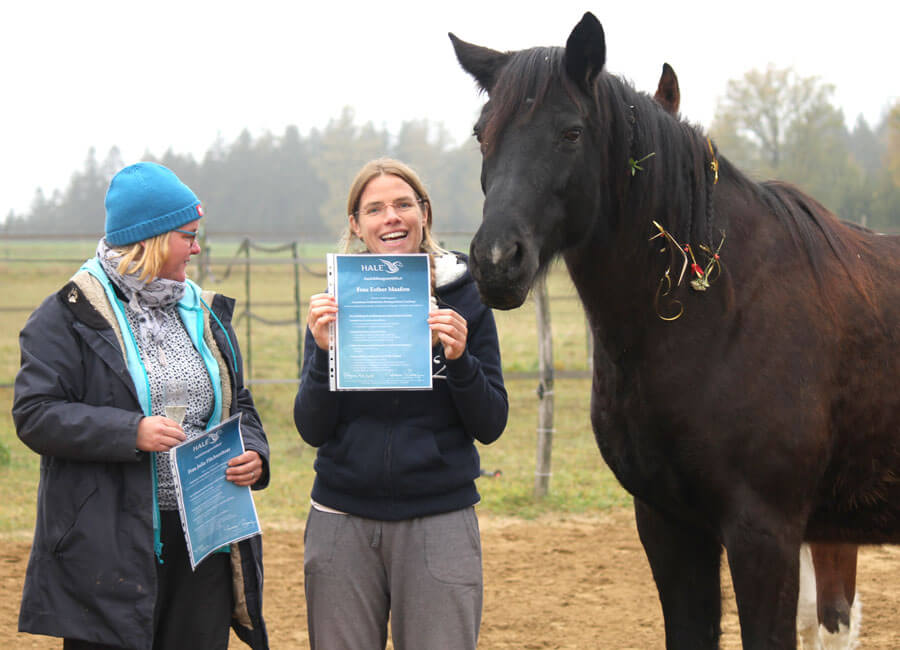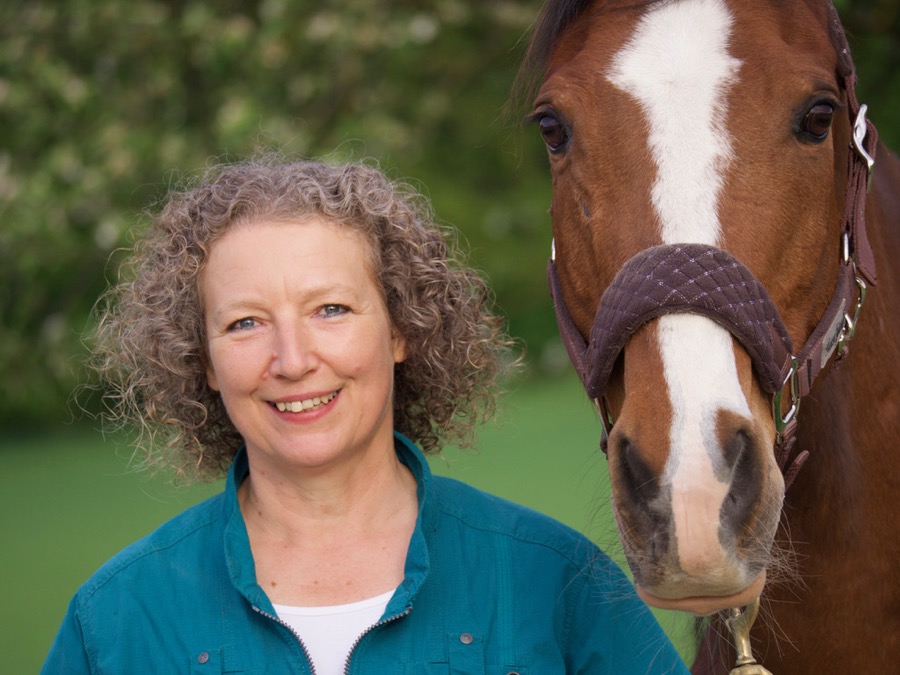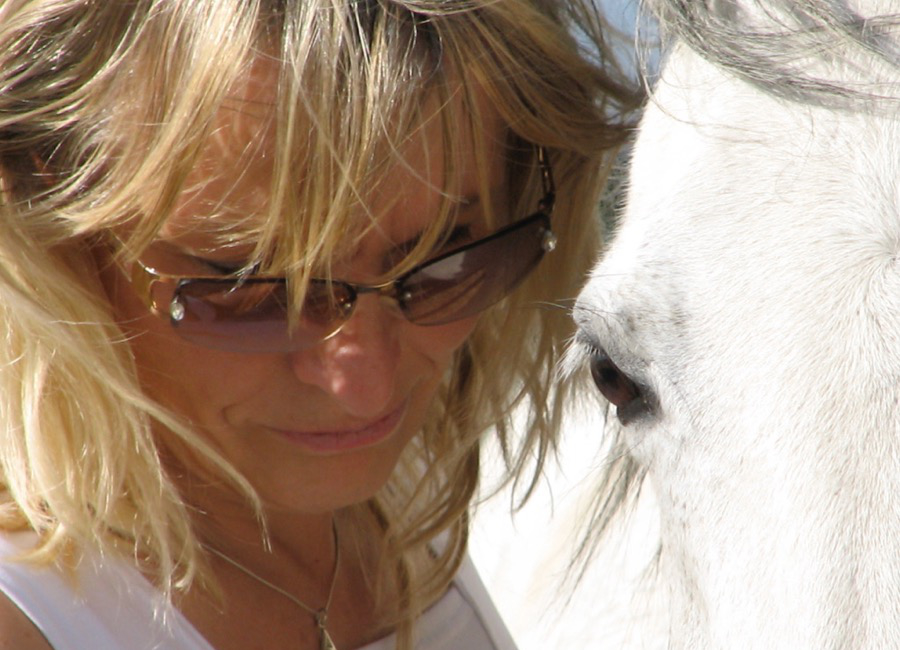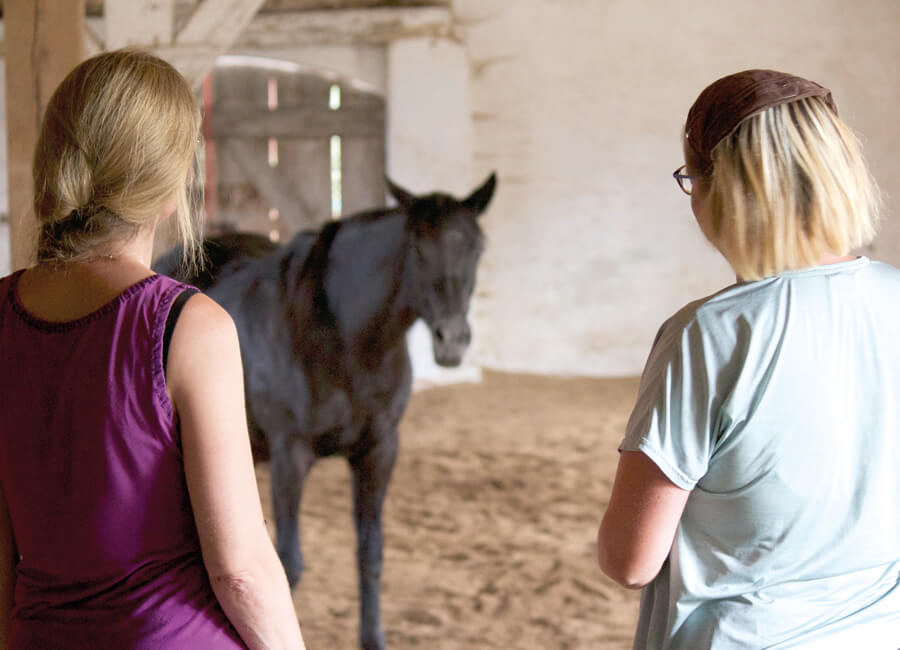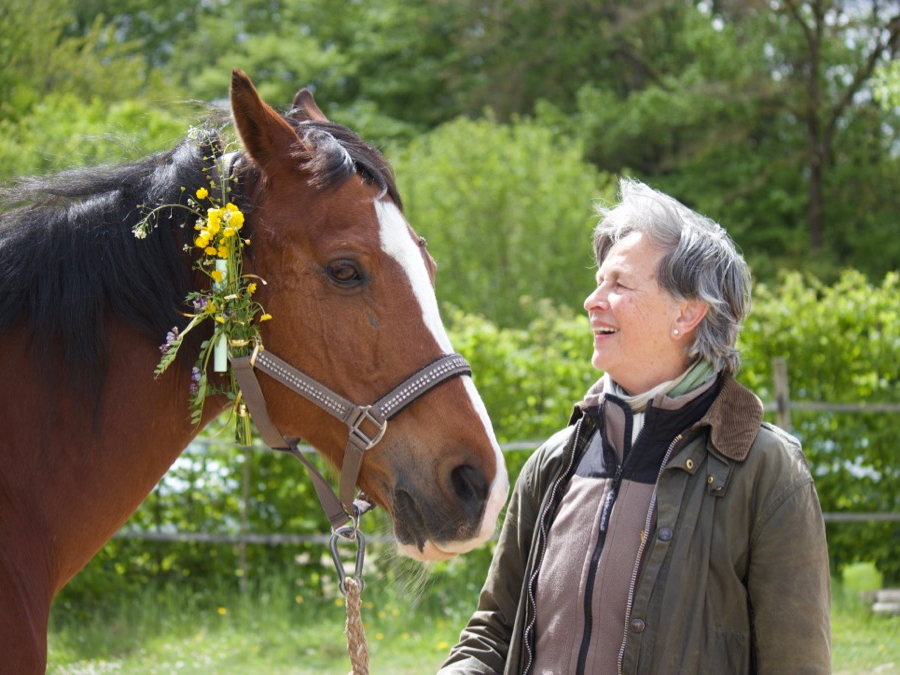Profession, vocation and personal development
- Would you like to steer your love of horses into a professional career?
- Do you feel called to work with people and/or horses?
- Are you already working in this field and would like to further your education?
Then our training programme could be just the thing for you!
Horse-assisted coaching has become increasingly popular over the last two decades. And rightly so, because it can lead to very profound and sustainable success - provided it is applied competently and responsibly.
The job title "coach" is not protected. There are no legally prescribed requirements for the competence of a coach. Anyone who feels called to do so can call themselves a coach. The use of horses is also not clearly regulated. However, not everything that is legally permitted is also ethically justifiable.In coaching, as in therapy, we work with the human psyche. But that is exactly what can be easily wounded. A coach should therefore know exactly what he/she is doing. Otherwise, it can lead to serious emotional disturbances and trauma for the client. It requires expertise, empathy and great sensitivity to be able to constructively support the profound processes that arise between the client and the horse. It also requires sound knowledge and experience in order to integrate the horse as a co-coach and partner in a meaningful way without instrumentalising it or misinterpreting its behaviour.
With the appropriate expertise, horse-assisted coaching can achieve a great deal of good and contribute to a significant improvement in the client's quality of life.
